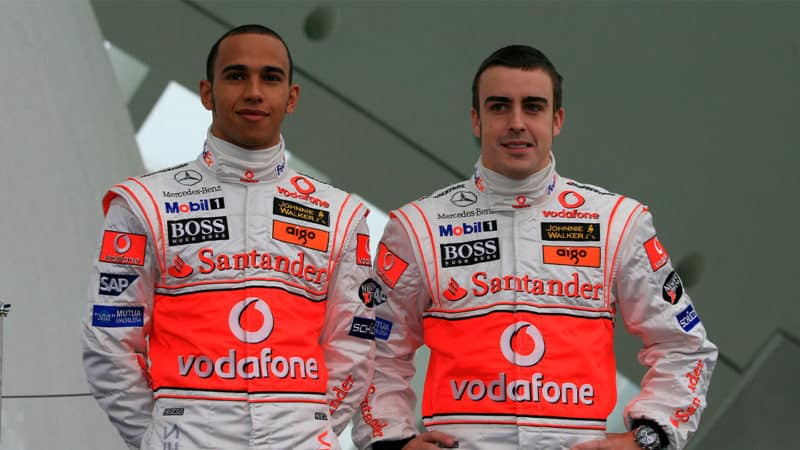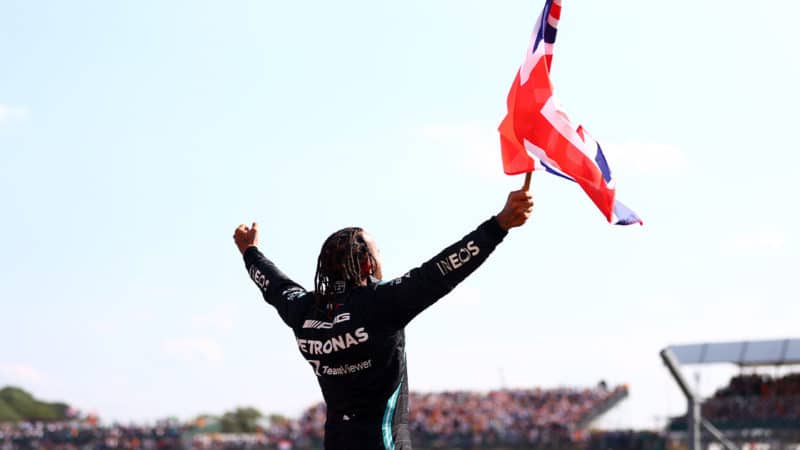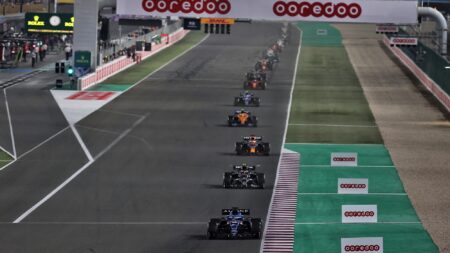Besides, being in the fastest car for a big percentage of their career applies to pretty much every driver on this list. They were recruited by the teams with the fastest cars because they’d marked themselves out as special. Once there, they delivered – often against searingly fast team-mates.
Another charge levelled at Hamilton is that the margin of advantage of his Mercedes over the next-best car has been outrageous. Let’s take a look at that claim from a historical perspective: the average percentage performance advantage (in qualifying) of Mercedes over the next fastest car in the eight seasons of the hybrid era to date is 0.46% (ranging from 0.02% behind in 2018 up to 0.9% faster in 2014). How does that compare to other dominant cars in F1 history? It doesn’t get close.
| Year | Car | Performance percentage over next fastest car | |
| 1. | 1950 | Alfa Romeo Alfetta | 2.04% |
| 2. | 1992 | Williams FW14B | 1.92% |
| 3. | 1993 | Williams FW15C | 1.82% |
| 4. | 1952 | Ferrari 500 | 1.52% |
| 5. | 1988 | McLaren MP4/4 | 1.47% |
| 6. | 1967 | Lotus 49 | 1.37% |
| 7. | 1961 | Ferrari 156 | 1.29% |
| 8. | 1955 | Mercedes W196 | 1.27% |
| 9. | 1978 | Lotus 79 | 1.17% |
These were all more dominant than even the best of the hybrid Mercs. Some by a spectacular margin.
It’s true that modern reliability flatters Hamilton’s stats relative to those of any pre-’90s drivers. If, for example, we assigned to Jim Clark Hamilton’s reliability record, the great Scot’s win ratio would be well in excess of 50%. Fangio’s would be greater than it already is, Jackie Stewart’s would be comparable to Hamilton’s as probably would Stirling Moss’s.

Hamilton’s numbers are comparable to Schumacher’s – but Brit has had far tougher team-mates
Grand Prix Photo
But Hamilton’s stats are directly comparable to Schumacher’s, for example. Schumacher was in the outright fastest car for five seasons (’95, ’01, ’02, ’03 and ’04) and in competitively fast cars for six (’94, 97, 98, 99, 2000 and 2006), cars which weren’t unquestionably the best but could enter each race as a contender for a win. Hamilton has been in unquestionably the fastest car for six seasons (in 2014, ’15, ’16, ’17, ’19 and ’20) and competitively fast cars for seven (2007, 08, 10, 11, 12, 18 and ’21). Thirteen seasons of top cars for Hamilton, 10 for Schumacher – and a very similar winning average during that time. Looking only at Schumacher’s ‘first’ career and not his three-year return in a mediocre Mercedes, his winning average is marginally better than Hamilton’s – but that was with subservient team mates in a support role, a luxury Hamilton has never had. Schumacher’s first career stats would have taken a knock had he had alongside him on equal terms the equivalent of Fernando Alonso, Jenson Button and Nico Rosberg.
All of which is to underline that although winning more than any other driver in the championship’s history doesn’t automatically make him the greatest, there’s absolutely nothing about his performances which debars him from being considered as a contender for that accolade. That is true regardless of whether he is a seven or an eight-time world champion. His status is assured regardless of what his decision about 2022 will be.



